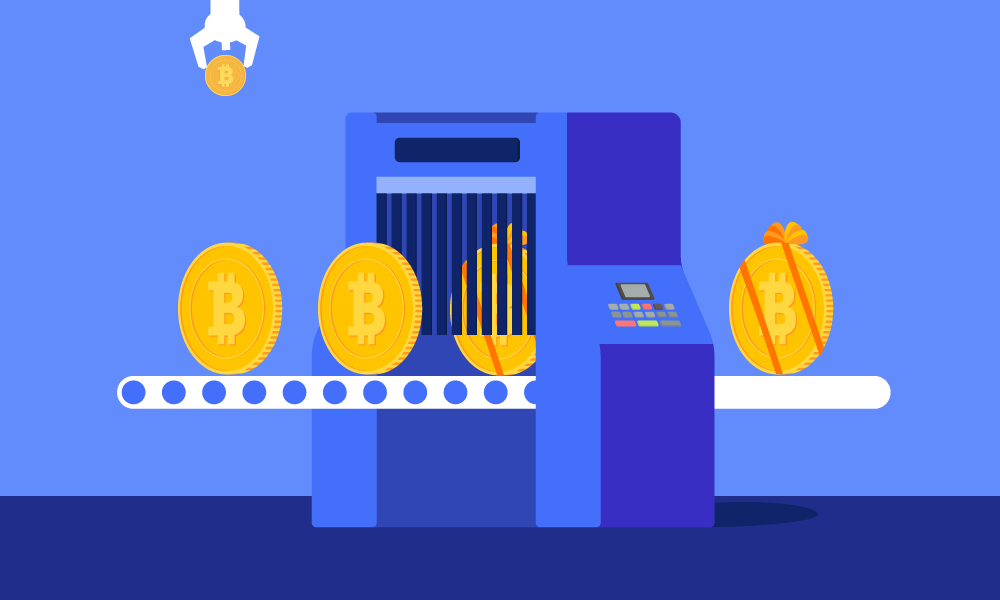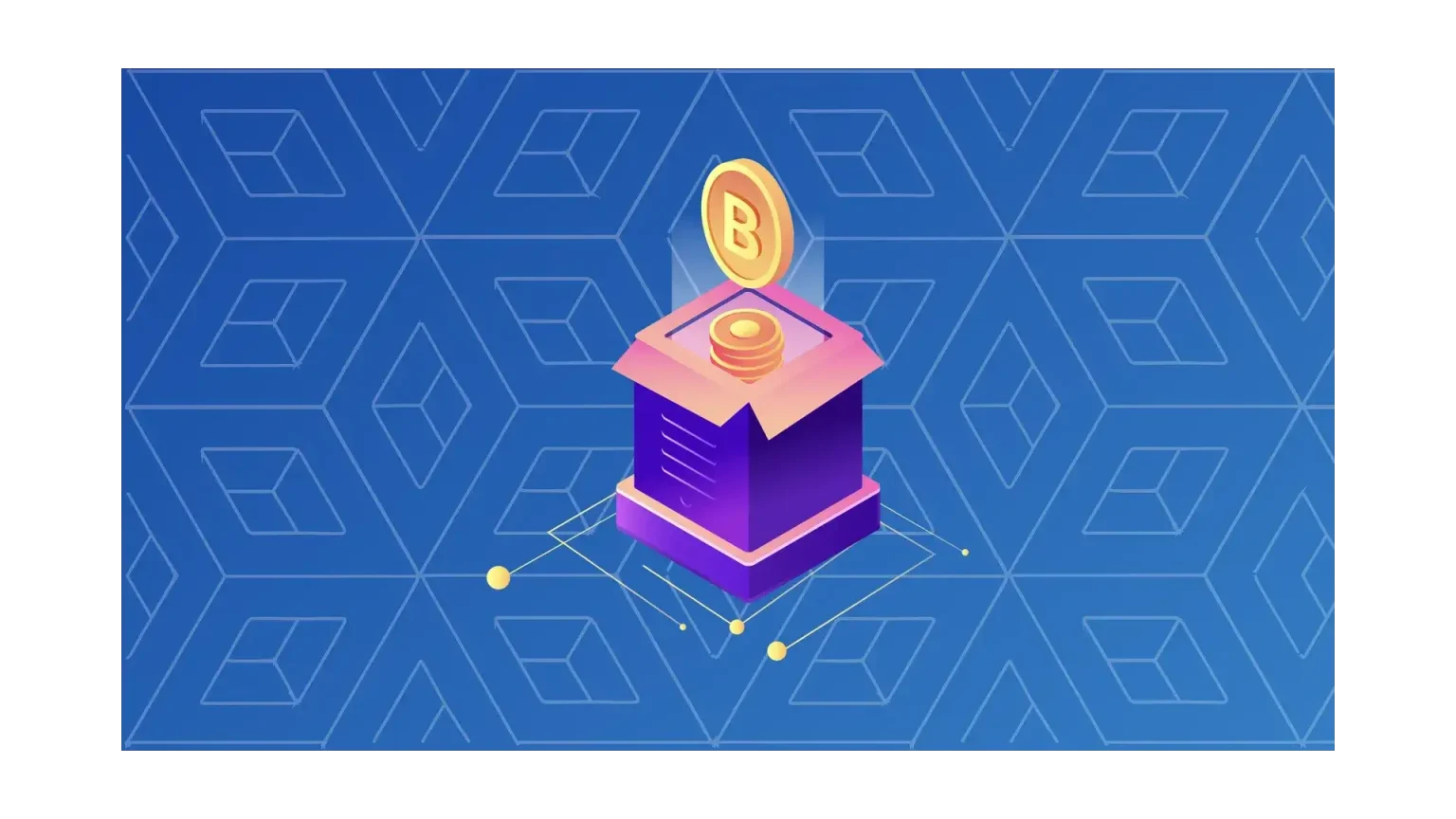A medida que el ecosistema de las criptomonedas se interconecta, los tokens envueltos se han convertido en una herramienta vital para permitir la funcionalidad entre cadenas y ampliar los casos de uso de los activos digitales. Los tokens envueltos, como WBTC o wETH, permiten que las criptomonedas de una cadena de bloques operen en otra, abriendo nuevas posibilidades en las finanzas descentralizadas (DeFi), el comercio y la liquidez.
En esta guía para principiantes, explicaremos qué son los tokens envueltos, cómo funcionan, sus casos de uso y por qué son importantes. También proporcionaremos información práctica para integrar los tokens envueltos en su estrategia de negociación con herramientas como el Cuadro de mando EPIQ Crypto Macro.
¿Qué son las fichas envueltas?
Los tokens envueltos son activos digitales vinculados al valor de otra criptomoneda o activo del mundo real. Envuelven" el activo subyacente en una forma tokenizada, lo que le permite operar en una cadena de bloques a la que no pertenece de forma nativa.
Características principales
- Valor fijo: El valor del token envuelto es siempre equivalente al activo subyacente (por ejemplo, 1 WBTC = 1 BTC).
- Funcionalidad entre cadenas: Los tokens envueltos permiten la interoperabilidad entre diferentes blockchains.
- Custodia: Un custodio (contrato inteligente o entidad) mantiene el activo subyacente y emite tokens envueltos.
Cómo funcionan las fichas envueltas
1. Proceso de tokenización
- El activo original (por ejemplo, BTC) se envía a un custodio o se bloquea en un contrato inteligente.
- El custodio emite una cantidad equivalente de tokens envueltos (por ejemplo, WBTC) en la blockchain deseada.
2. Canje de fichas envueltas
- Cuando el usuario quiere canjear el activo original, se queman los tokens envueltos y se libera el activo subyacente.
3. Ejemplo: Bitcoin envuelto (WBTC)
- El BTC se bloquea en un contrato inteligente, y se acuña una cantidad igual de WBTC en la blockchain de Ethereum.
- Ahora, WBTC puede utilizarse en aplicaciones DeFi basadas en Ethereum conservando su valor en BTC.

Por qué son importantes las fichas envueltas
1. Compatibilidad entre cadenas
Los tokens envueltos permiten a criptomonedas como Bitcoin, que opera en su propia blockchain, interactuar con protocolos DeFi basados en Ethereum, aumentando su utilidad.
2. Mayor liquidez
Al tokenizar activos como Bitcoin en otra blockchain, los tokens envueltos impulsan la liquidez en las plataformas DeFi, permitiendo oportunidades de negociación y préstamo más sólidas.
3. Casos de uso ampliados
Los tokens envueltos desbloquean funcionalidades como:
- Producción agrícola en plataformas DeFi.
- Garantías para préstamos.
- Participación en bolsas descentralizadas (DEX).
4. Unir los ecosistemas Blockchain
Los tokens envueltos actúan como puente, facilitando la interoperabilidad entre blockchains y fomentando un criptoecosistema más interconectado.
Fichas populares envueltas
1. Bitcoin envuelto (WBTC)
- Activo subyacente: Bitcoin.
- Blockchain: Ethereum.
- Casos prácticos: Trading, DeFi lending y pools de liquidez.
2. Ethereum envuelto (wETH)
- Activo subyacente: Ethereum.
- Blockchain: Ethereum.
- Casos prácticos: Utilizado en DeFi basado en Ethereum para estandarizar transacciones e interactuar con contratos inteligentes.
3. Moneda Binance envuelta (wBNB)
- Activo subyacente: Binance Coin (BNB).
- Blockchain: Binance Smart Chain y otros.
- Casos prácticos: Permite al BNB operar en diferentes cadenas para actividades DeFi.
Casos de uso de los tokens envueltos
1. Integración DeFi
Los tokens envueltos se utilizan mucho en las plataformas DeFi para:
- Fondos de liquidez: Proporcionar liquidez a las bolsas descentralizadas.
- Replanteo y producción agrícola: Ganar recompensas apostando tokens envueltos en contratos inteligentes.
- Garantías para préstamos: Utilizar tokens envueltos como garantía en plataformas de préstamo como Aave o Compound.
2. Oportunidades de arbitraje
Los tokens envueltos permiten el arbitraje entre diferentes blockchains, lo que permite a los operadores capitalizar las discrepancias de precios.
3. Mejora de la accesibilidad
Al envolver los tokens, activos como Bitcoin pueden ser accesibles a usuarios de otros ecosistemas de blockchain, como Ethereum o Binance Smart Chain.
Riesgos del uso de tokens envueltos
1. Riesgos de custodia
Dado que los tokens envueltos dependen de custodios o contratos inteligentes, cualquier brecha en la seguridad podría poner en peligro los activos subyacentes.
2. Tasas de transacción
La transferencia de tokens envueltos entre blockchains puede incurrir en comisiones adicionales, lo que reduce la rentabilidad para los operadores.
3. Vulnerabilidades de los contratos inteligentes
Los fallos o exploits en el contrato inteligente que gestiona los tokens envueltos pueden provocar pérdidas potenciales.

Cómo empezar a utilizar fichas envueltas
1. Elija una plataforma fiable
Utilice plataformas de confianza como Uniswap, Aaveo Binance para comerciar y utilizar fichas envueltas.
2. Seguimiento de las tendencias del mercado
Siga las tendencias y la liquidez de los tokens envueltos con herramientas como el Cuadro de mando EPIQ Crypto Macro.
3. Asegure sus activos
Almacene sus tokens de forma segura utilizando un monedero físico como Libro mayor para minimizar los riesgos.
4. Evaluar los costes
Tenga en cuenta las comisiones de transacción y el posible deslizamiento al negociar o transferir tokens envueltos.

Cómo puede ayudar el parqué EPIQ
En Parqué EPIQle proporcionamos los recursos que necesita para incorporar fichas envueltas a su estrategia de negociación:
- Datos en tiempo real: Analizar las tendencias del mercado y la liquidez de los tokens envueltos.
- Contenido educativo: Aprenda a maximizar las ventajas de utilizar fichas envueltas.
- Cuadro de mandos macro: Utilice nuestro cuadro de mandos de macro criptografía para supervisar las actividades entre cadenas y el rendimiento de los tokens.
Comienza tu 3 días de prueba gratuita hoy mismo y aprovéchese de las herramientas que potencian su viaje comercial.
Conclusión
Los tokens envueltos están transformando el ecosistema de las criptomonedas al tender puentes entre blockchains, mejorar la liquidez y ampliar la utilidad de los activos. Tanto si eres un entusiasta de DeFi como un operador en busca de oportunidades de arbitraje, entender los tokens envueltos es clave para aprovechar todo su potencial.
¿Listo para desbloquear nuevas oportunidades con tokens envueltos? Únase a la Parqué EPIQ y explorar la cuadro de mandos de macro criptografía para mantenerse a la vanguardia en el cambiante mundo de las criptomonedas.
Descargo de responsabilidad: La información proporcionada en este blog tiene únicamente fines educativos y no constituye asesoramiento financiero. El comercio de criptomonedas implica un riesgo significativo, y usted debe consultar con un asesor financiero antes de tomar decisiones de inversión.










Respuestas